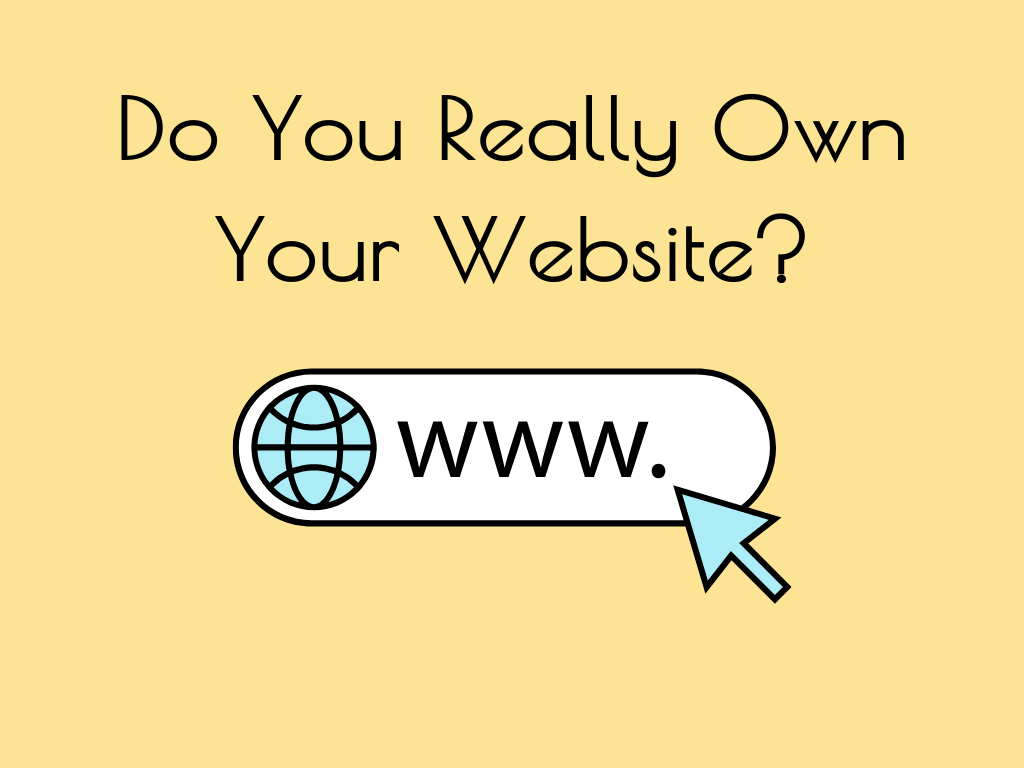Do You Really Own Your Website? What Every Small Business Needs to Know

If you’re a small business owner, your website is one of your most valuable marketing tools. It’s your digital storefront, often making the first impression on potential customers.
It’s natural to assume that if you paid for it, you own it, but that’s not always the case.
Too often, businesses sign website contracts without fully understanding what they’re agreeing to—only to discover later that they don’t truly own their site, content, or access. By then, it can be difficult and costly to make a change.
Before entering into any website design or marketing agreement, it’s important to do a little research and ask the right questions. Read more to learn how to protect your investment for the long term.
Ownership Goes Beyond Payment
Just because you paid for it doesn’t mean you own the website. Surprised? You are not alone. Many business owners realize too late that they truly do not own their website, content or images. True website ownership includes:
- The design
- The written content
- The images and media assets
- The domain name
- The CMS (content management system)
- Full administrative access
If any of these elements are tied to a proprietary platform or locked behind a vendor’s control, you’re at risk of losing access—or having to start over—if the relationship ends.
Choosing platforms like WordPress or Shopify, which are widely used and not owned by an agency, ensures you can take your website with you, no matter who you work with in the future.
Read the Fine Print: Contracts Matter
Some website providers use long-term contracts that lock you in for 12–36 months, often with unclear language about who owns what. This can limit your flexibility and even leave you without a website if you decide to part ways.
A more business-friendly approach is:
- An initial project agreement for the build
- A month-to-month plan for hosting, support, or marketing services afterward
- Clear terms that state you own your site and its content outright
If a company isn’t transparent about these details, it’s worth asking why.
Make Sure You Hold the Keys
Administrative access is often overlooked, but it’s essential. At a minimum, you and one other trusted team member should have full access to:
- Your website CMS
- Your domain registrar (like GoDaddy or Cloudflare)
- Your hosting account
- Any connected services (email platforms, CRMs, etc.)
This ensures continuity if a team member leaves or if you ever transition to a different provider. Relying on a single point of contact—whether internal or external—creates unnecessary risk.
Think Long Term
It’s easy to focus on the launch of your new website, but what happens six months—or six years—down the line is just as important. A new website is exciting, but before signing any agreement, ask yourself:
- Can I easily update the site myself (or train someone to)?
- Will I be able to move the site to another provider if needed?
- What ongoing support is offered, and is it flexible?
- Who owns the imagery and content created during the project?
Taking the time to ask these questions now can save time, money, and stress down the road.
Final Thoughts: You Deserve to Own Your Website
Your website isn’t just a line item in your marketing budget—it’s an essential part of your business. You should own it in every sense of the word. That means:
- You own the design, content, and images
- You have full admin access
- It’s built on a non-proprietary platform
- You’re not locked into a long-term contract
At the end of the day, ownership gives you control, flexibility, and peace of mind.
Need a second opinion on a website agreement, or looking to build a site you fully own? We help small businesses build websites that are strategic, scalable, and 100% theirs from day one.